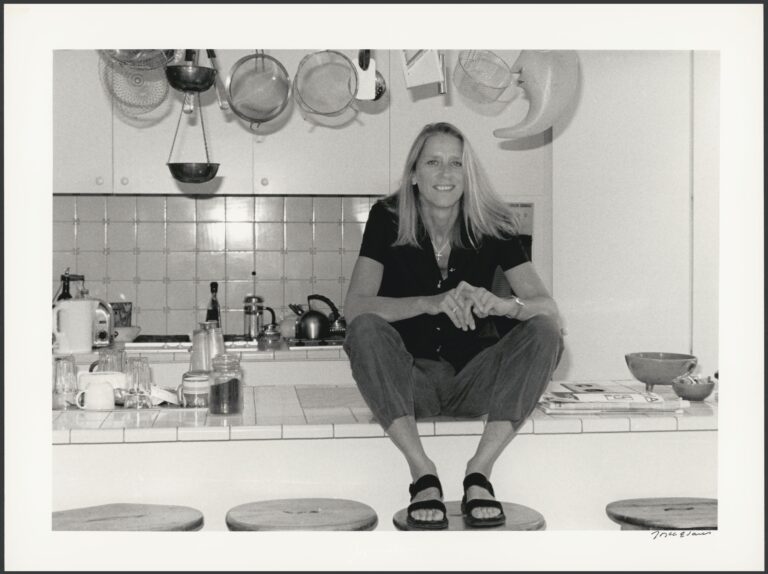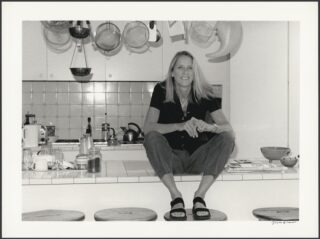- Entry type: Person
- Entry ID: AWE2701
Reichstein, Jill
- OAM

- Born 1949, Melbourne Victoria Australia
- Occupation Community advocate, Philanthropist
Summary
Jill Reichstein is Chair of the Reichstein Foundation and an advocate of social change philanthropy. Mentor to many Australian women philanthropists, she is a member of the Committee of Management for Changemakers Australia and has served on the boards of the Melbourne Community Foundation, the Foundation for Young Australians, the Community Support Fund Community Advisory Council, the Trust for Young Australians, the Mietta Foundation, the Koori Heritage Trust, and Philanthropy Australia.
Details
The only child of industrialist Lance Reichstein, Jill grew up in Toorak, self-conscious about her family’s wealth. She was never taught skills in money management by her father, who distrusted the political groups with which she was involved. Jill took part in the anti-Vietnam War and anti-apartheid movements. She studied Liberal Arts in the United Kingdom, and was in Paris during the manifestation of 1968. Back in Melbourne, she completed studies in sociology and anthropology at Monash University. She worked at a women’s refuge in Kew – the first community-based halfway house – and was greatly influenced by the women’s liberation movement. She also worked in community-based childcare for the Brunswick Community Group, and for the Brunswick City Council.
On his death, Lance Reichstein left the majority of his substantial fortune to establish the Lance Reichstein Foundation. Jill, then twenty-five years old, was appointed to the otherwise all-male board of trustees. Frustrated by the board’s preoccupation with the investment of funds, as opposed to their distribution, she instigated a change of personnel. Over the next eight years she replaced board members with experienced women passionate about social change, and became Chair at the age of thirty-five. Lance Reichstein’s own philanthropy had been traditional in style, with donations to established charities and hospitals. His trust deed stipulated that funding should go to welfare and educational endeavours. It was sufficiently broad to allow Jill and her new board to undertake some more ambitious projects.
Jill established the Social Change Network in the 1980s. In part, the group was made up of people with ‘a strong belief that society should be more equitable. Others have just felt a discomfort at having too much’. She set out to change the public perception of philanthropy and philanthropists, insisting that traditional charities were addressing the symptoms rather than the causes of society’s problems. She was quoted in the Good Weekend in February 1989: ‘I think a lot of women who inherit wealth have never been taught the modes of managing their money or ways of dealing with solicitors and accountants’. Jill was also involved in Women in Philanthropy, which began as a support group for women who felt uncomfortable with their wealth or were seeking ideas for philanthropic activity. Inspired by an American publication, Robin Hood was Right, she arranged for donor activist and philanthropist Tracy Gary to visit Australia and speak to the group.
From the outset, Reichstein has specialised in funding programs deemed high risk. Of her training scheme through the Aboriginal Health Service in 1989 she noted ‘the Health Commission wouldn’t touch it’, but the program successfully trained 27 people per year. Four years later, the Good Weekend was writing about the Reichstein Foundation again, discussing its funding for a support group for truckies’ wives; a sports program for Aboriginal youth; the Victorian Foundation for Survivors of Torture; and a theatre group of former women prisoners (Somebody’s Daughter).
Today the Reichstein Foundation is worth $12 million. Jill Reichstein speaks regularly about her work at seminars and conferences (see conference proceedings from Philanthropy Australia) and her daughter Lucy and son Tom are members of the board, which is comprised of four women and two men. Priority funding areas are Indigenous people; people with a disability; refugees and asylum seekers; environment; human rights; and the criminal justice system.
Events
-
2001
Inducted into the Victorian Honour Roll of Women
Digital resources
Published resources
- Thesis
-
Resource Section
- A Great Form of Love: Women Philanthropists in Australian History, Lemon, Barbara, 2008, http://www.abc.net.au/rn/hindsight/
- Newspaper Article
-
Site Exhibition
- In Her Gift: Women Philanthropists in Australian History, Australian Women's Archives Project, 2009, http://www.womenaustralia.info/exhib/wiph/home.html
- The Encyclopedia of Women and Leadership in Twentieth-Century Australia, Smart, Judith and Swain, Shurlee (eds.), 2014, http://www.womenaustralia.info/leaders
-
Resource
- Trove: Reichstein, Jill (1949-), http://nla.gov.au/nla.party-742074
